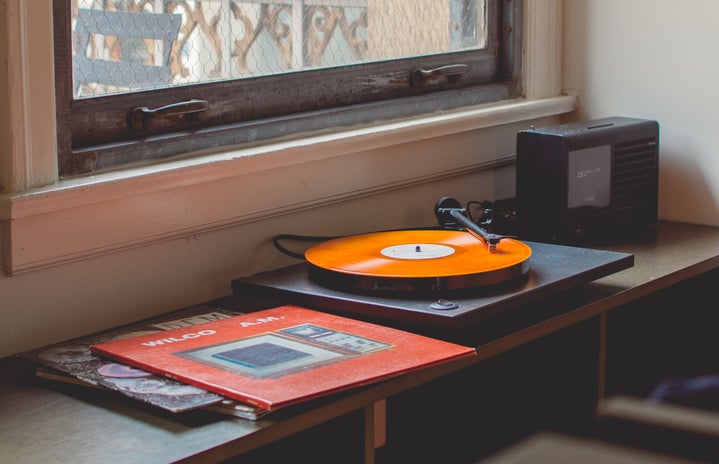As the end of the spring semester is wrapping up for many college students, feelings of stress, exhaustion, and burnout are at an all-time high. There are many ways to try to diminish these feelings, and my go-to is music. Music brings me to my happy place — I feel grounded, calm, and ready to conquer any studying or tasks I have to complete. It is scientifically proven that music is good for your brain, body, and soul in many ways that you may not be aware of.
brain
Listening to music is actually a way to exercise your brain. As sound waves flow from your headphones to your ear canals, your brain is hard at work computing these vibrations into sound for you to understand and enjoy. Harvard Health reports that music activates every part of the brain, involving the auditory and motor cortexes, memory region, and the parts of your brain in charge of emotions. Engaging these pathways of your brain keeps them active and agile which is good for your well-being, learning, and even happiness. According to hopkinsmedicine.org, your brain is boosted by listening to music everyday. Music can enhance your mental alertness, mood, and memory skills, which all help extend your lifespan. Many people connect a certain memory or time period in their life to a specific song or artist. I am often brought back to my childhood when I listen to “There’s Nothing Holding Me Back” by Shawn Mendes or “Who Says” by Selena Gomez. The daily occurrence of listening to music is just like going the gym for your brain, so be proud every time you hit play.
The Nostalgia Mix
Body
Music also carries tons of health benefits that help your body function at higher levels of efficiency:
- It’s heart healthy! According to Endeavor Health, studies have shown that blood flows easier when music is played. It can also reduce your heart rate, blood pressure, and your levels of cortisol, also known as the stress hormone.
- It increases workout endurance! Working out with music is more effective as it can boost your physical performance and boost your stamina when doing interactive exercises like running, lifting, or pilates.
- It can be used to manage pain! Some studies have shown that people who listen to music during and after medical procedures have less pain during recovery than those who do not. While it is not exactly clear why music helps reduce pain, it may correlate with the dopamine release that music gives people when they listen. This dopamine release fights pain receptors and levels of stress to lessen pain that you extreme physically.
The Getting fit Mix
Soul
This year, I listened to a whopping 59,877 minutes on Spotify, which averages to about 164 minutes, or about 2.67 hours a day. While some may think this sounds excessive, I listen to music for one reason: it feels and sounds good! There is nothing like jamming to a hype Drake song while you work out, crying to an Olivia Rodrigo ballad after another failed situationship, or laying down in the grass on a sunny day while The Backseat Lovers play. Music is so powerful as it aids to any emotion you want to feel and enhances so many experiences. Sometimes it is hard to find the words to understand how you feel, but a certain song or playlist will do the trick. Music helps us realize that so many people around the world have felt, experienced, and realized the same things we have. We are able to bond with our friends, family, and even other strangers about the music we love, hate, or are excited to hear. Music is a tool that cultivates a sense of community and unity among people near and far.
The Healer Mix
Turn up the tunes
Every time I listen to music, I remind myself of the many favors I am doing for myself. As we, the college students of America, begin to prepare for the stressful time of finals, remember to destress, unplug, or lock in with your favorite tune or playlist. You never know the difference it may make in your mood or final grades. So turn up those airpods and jam in honor of your brain, body, and soul.



